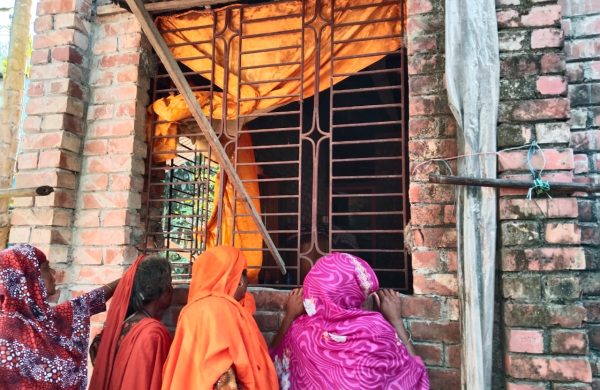The Price of Arrogance: A Crisis in Communication
- Update Time : Thursday, August 15, 2024

–Dr. Kapil Kumar–
The recent Anti-discrimination Student Movement in Bangladesh serves as a stark and profound reminder to ruling parties around the world. It underscores the reality that when leaders distance themselves from their populace, particularly the youth, and foster a communication gap, even the most entrenched power structures can be dismantled in mere 45 minutes. This movement, which rapidly gained momentum, was driven by a demand that was neither revolutionary nor aimed at overthrowing the government. The students advocated for a fair and merit-based system by pushing for changes to the government’s existing job quotas. But the government reacted in a very arrogant, had a heavy-handed approach, and poorly executed decisions that ended in tragedy. The harsh measures taken against the protesters, such as using military helicopters and armoured vehicles, led to thousands of injuries and claimed the lives of more than 440 people. This incident stands as a brutal chapter in Bangladesh’s post-liberation history.
The sheer brutality and extent of the government’s repression, which saw the death toll exceed 300 within just three weeks, highlighted the government’s gross mishandling of the situation. This period is now regarded as one of the bloodiest in the nation’s post-liberation history. Despite the movement temporarily calming down following a Supreme Court decision, the government’s actions did not. Instead, the authorities launched a campaign of mass arrests, detaining nearly 4,784 students within the span of just six days. Additionally, without a clear understanding of the potential consequences, the government’s impulsive and misjudged decision to ban Jamaat-e-Islami and its student wing, Chhatrashibir, further aggravated the crisis.
A major misstep by the government was its refusal to engage in constructive dialogue with the protesters. Instead of taking the chance to mediate through respected figures, the government chose a confrontational and adversarial approach. The students had presented nine specific demands and were open to negotiation, yet this opportunity for peaceful resolution was dismissed by the authorities.
The situation was further inflamed by a series of irresponsible and inflammatory statements made by Sheikh Hasina and other senior government officials.
Hasina’s remark questioning why the protesters harboured resentment towards freedom fighters and suggesting that their demands might inadvertently benefit the descendants of collaborators (‘Razakars’) was particularly incendiary. This statement led to immediate and widespread unrest in Dhaka University, with hundreds of students taking to the streets in protest. Various other ministers also contributed to the growing tension by making derogatory comments that only served to exacerbate the situation. The ruling party’s decision to deploy its student wing, Bangladesh Chhatra League (BCL), to suppress the protests was another significant miscalculation. The BCL’s involvement in violent crackdowns, including attacks on protesters within hospital premises, was widely condemned both domestically and internationally.
This crisis highlighted not only the government’s mismanagement but also the significant organisational flaws within the ruling Awami League. Political observers have noted the party’s internal discord, increasing self-awareness and widespread corruption among its leaders as key reasons for its declining state. The movement showed that the party had drifted away from its original principles, leading to growing discontent with its leadership, even among its own ranks. Many party members and activists expressed concerns that the Awami League had lost its way and was no longer guided by the ideology that once inspired its political endeavours.
The key failure was the government’s powerlessness to understand and comprehend the grievances of the youth, who were the driving force behind the movement. This movement was fuelled by a mix of anger, passion and deep injustice. It could have been an opportunity for the government to reconnect with the younger generation and address their concerns. However, instead of engaging constructively, the government chose repression and autocratic behaviour, further alienating the youth and deepening the crisis. Sheikh Hasina’s approach to post-movement was short-sighted, as the complexities of the quota system meant that complete abolition was never a viable legal option. Moreover, the government’s disregard for youth concerns and its decision to pursue a repressive course only escalated the crisis.
The tragic deaths that occurred during the movement, particularly those of students, were entirely preventable. Each life lost intensified the struggle, and the government’s failure to recognise the seriousness of the alliance formed between students, teachers and opposition parties was a significant oversight. The ruling party’s greatest weakness during this period was its consistent underestimation of the opposition and its failure to recognise the public’s increasing dissatisfaction. The absence of dialogue and trust between the government and the people ultimately resulted in an uncontrollable situation, with severe consequences.
The student movement in Bangladesh serves as a powerful lesson on the importance of communication, understanding and empathy in governance. It highlights the risks of arrogance and the severe consequences of a government’s failure to engage with its citizens, particularly the youth. The ruling party’s mishandling of the crisis has left a profound and enduring mark on the nation’s history, one that will not be easily forgotten. Future leaders, both in Bangladesh and elsewhere, should learn from this experience and focus on dialogue, respect and inclusion in their governance.
__________________________________
The writer recently completed his PhD from Amity University Rajasthan, India



















